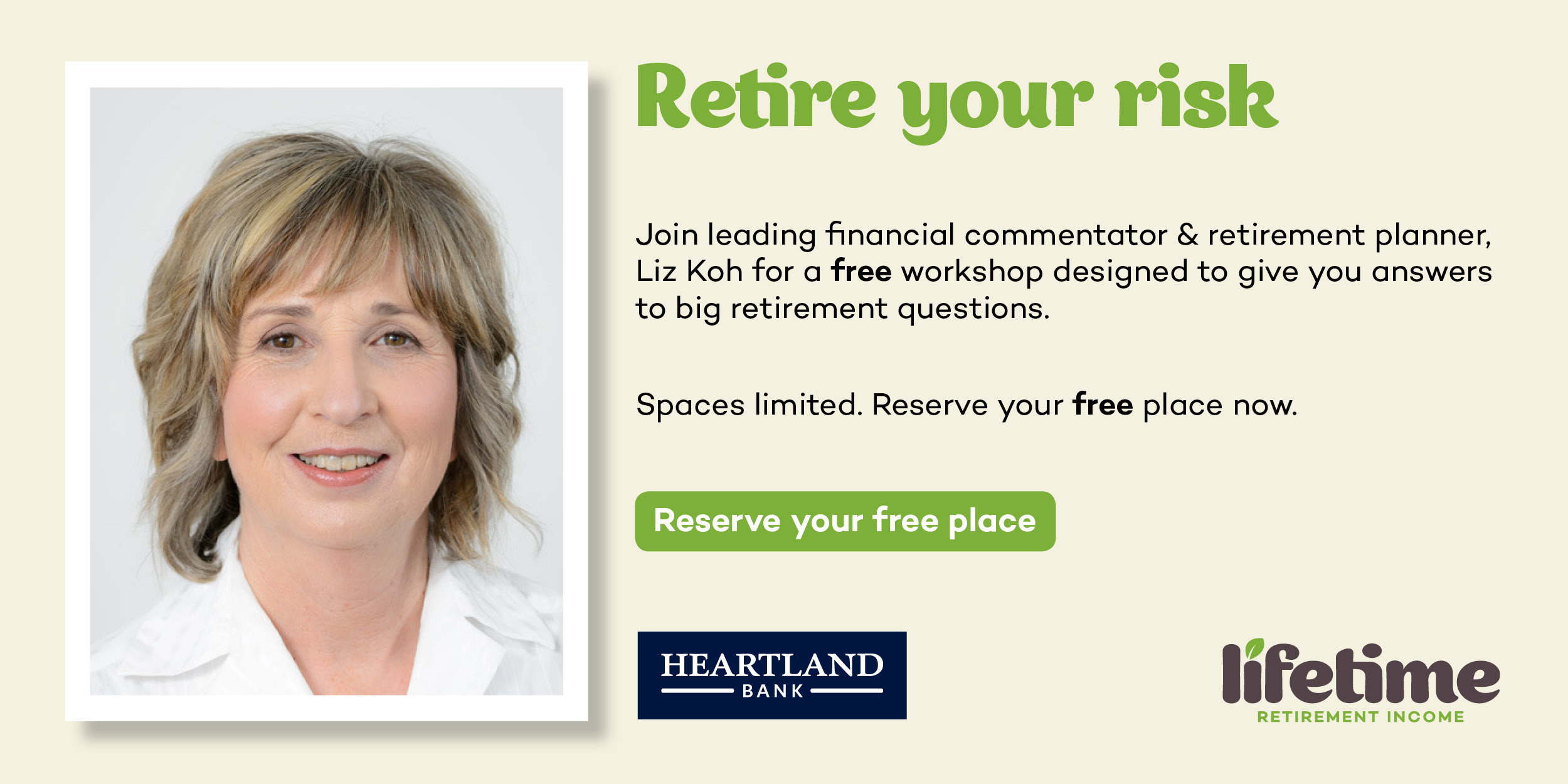News
2 July 2018
Are you wasting money on insurance?
While it’s widely accepted that most New Zealanders are under-insured, some are over-insured. Being over-insured basically means you are wasting money on insurance.
After a mortgage, personal insurances like life insurance are one of the most important financial decisions you can make. However too much insurance, or insurance that doesn't match your needs, could cost you thousands in unnecessary premiums.
These five points will help you determine whether or not you could be over-insured.
1. Changes in your stage of life
People move through different stages of life constantly. Your insurance policies should move accordingly as you’ll require different levels and types of protection at different stages.
If you have adult children and sufficient retirement savings, then it's quite possible you don't need life insurance. And depending on your individual circumstances, you may not need trauma insurance, or income protection insurance. Or, you might need insurance, but not require as high a level of cover as you did 10 or 15 years ago when the policies were originally put in place.
As we go through different life stages, our protection needs to evolve too. The best way to ensure your insurance cover matches changes in your stage of life is with annual reviews of your existing cover.
2. Your insurance coverage overlaps
An insurance overlap can happen in many cases, with one of the most common overlaps being when people have more than one income protection policy. Generally, this will mean that only the value of one income protection policy will be paid out.
Coverage overlap can also occur if you have multiple health insurance policies, such as where you hold one personal health insurance policy, and another under an employee health insurance plan. Having both policies only makes sense when one of them has low coverage and having a second plan will be able to cover the differences in claims if the need arises. However, if the medical policy provided by your employer is sufficient, holding another policy means you will be adding additional cost to your finances with little to no benefit. One option that may be suitable in the case of health insurance overlap is to lower your personal coverage to a reduced premium rather than cancelling it, as you may eventually move into a role with different employee benefits.

3. When your coverage is too high
Insurance is something that you pay for just in case the worst happens – whether it be an illness or an accident.
Insurance companies make calculations based on your individual circumstances to assess your risk – this is a process called underwriting. For example, if you are a smoker you will be classed as a high-risk individual and therefore pay higher premiums – because the chances of you claiming are naturally increased. The same is also true if you have family history of hereditary illnesses, are working a high-risk job, or if you frequently drink alcohol.
While it pays to be safe than sorry, you’re better off tweaking your coverage so that it’s balanced between providing adequate protection and being suitable for your financial situation – rather than paying a high premium that you can’t afford, for a level of cover you don’t need.
It could be worth taking a look at your coverage to see if you can lower your premiums or even get better options in the long run, especially if your situation has changed (e.g. you have left a high-risk occupation or stopped smoking). In the end, insurance isn’t just about the amount of coverage – it is also about utilizing it to your advantage without breaking the bank.
4. Complex policies
Insurance policies are complex legal documents. Particularly in the case of policies such as income protection insurance, health insurance, and trauma insurance, careful analysis is required to understand what is and isn’t covered. Unfortunately, most individuals do not understand the terms and features explained at length by insurance providers – usually in pages upon pages of fine print full of legal and health jargon. Perhaps most important to identify among the fine print are the exclusions, or what will not be covered by each policy. Some policies even expire, so regardless of you diligently paying premiums for years, you still risk your cover being cancelled. If you’ve purchased something you don’t understand, you will have a higher chance of being either over or under-insured.

Could you be left out of pocket because your coverage is too high?
5. Unnecessary insurances
Many people have a range of minor insurances that they don’t need, with a prime example of this being funeral insurance. There’s no doubt that paying for a funeral can be a financial hardship and in select circumstances, having a funeral plan can make a lot of sense. For example, funeral cover can be very handy when a person has no savings and they are in a poor health condition. With some providers, funeral cover has guaranteed acceptance – no medical, occupational, hazardous pastime, or financial underwriting is done. However, for most people, funeral cover simply does not make sense. This is because many people with funeral insurance eventually pay far more than the cost of the funeral in premiums, and that’s exactly what insurance companies are banking on in order to make a profit.
A Consumer NZ study completed in 2016 sampled funeral insurance policies available to 64-year olds for $10,000 worth of funeral cover. Consumer NZ found that if the policy holders lived a further 20 years, some would have paid more than double the cost in premiums than their family would ever receive as a benefit. Funerals are a known cost which we will all need one day, so we can plan and cater for accordingly. Most funeral insurance is also not really any different from life insurance, except the cover is usually for a much lower amount. A good life insurance policy will still pay out a sum to cover the funeral anyway.
Another example of unnecessary insurance is credit card insurance. Credit card insurance is usually offered as an additional service by credit card issuers (which are usually banks). Unless you work in a very risky occupation and therefore risk death, or disability resulting in unemployment and an inability to pay off your credit card, getting credit card insurance itself is over-insuring – no matter the amount. This is because selling credit card insurance to a credit card holder is another way for the issuer to make money.
Most consumers do not require credit card insurance because even if you become unemployed, you should have some savings that can cover the minimum amount – and then an income protection policy that will replace your lost income if you cannot return to work in a short time-frame, therefore enabling to you to meet your repayment obligations.
As with any policy, ensure you carefully consider your circumstances before deciding on getting or cancelling credit card or funeral insurance.
Note: Think carefully before cancelling any policies.
You need to be very careful when making the decision that you're over-insured and need to cancel or reduce your level of cover. If you've had the policy for several years, it's likely you won't be able to get insurance on the same terms again.

This article has been contributed by Joseph Darby, CEO and authorised financial adviser at Milestone Direct Ltd. This article first appeared on the Milestone Direct website. The views and opinions expressed in this article are those of Joseph Darby and not necessarily those of Milestone Direct Ltd. The views and opinions expressed in this article are intended to be of a general nature and do not constitute a personalised advice for an individual client. A disclosure statement relating to Joseph Darby is available on request, and free of charge.
Retire your risk: Free event with Liz Koh
Join leading financial commentator & retirement planner, Liz Koh for a free event designed to help you answer the big questions in retirement.
1) Transitioning from saving to spending
2) Investments, KiwiSaver, & property
3) Rest home subsidies, health insurance, & family trusts
4) Insured income for life (presented by Lifetime)
5) Reverse mortgages (presented by Heartland Bank)

Events held throughout regional North Island only.
Refreshments provided. Spaces limited. Reserve your free place now.